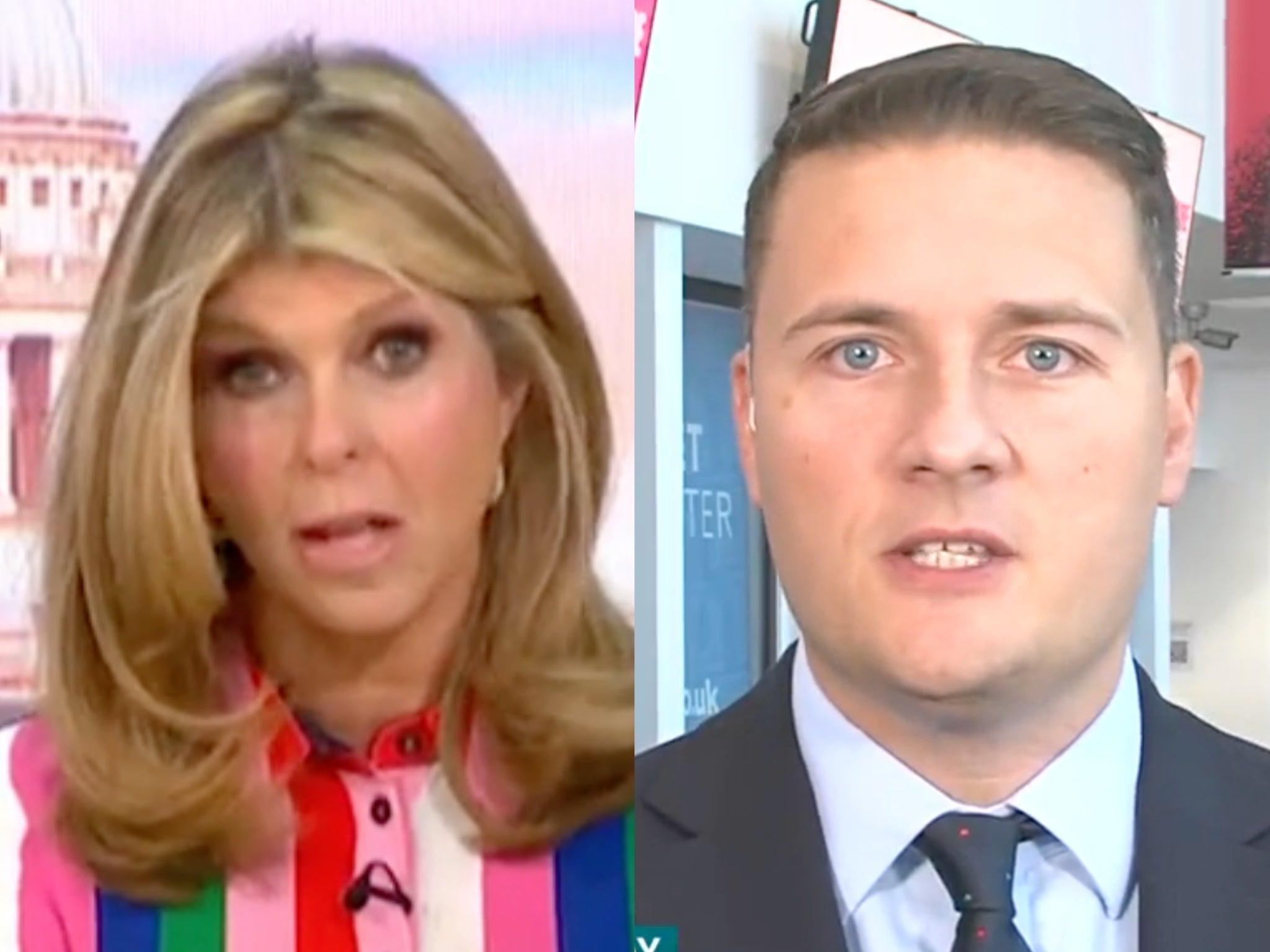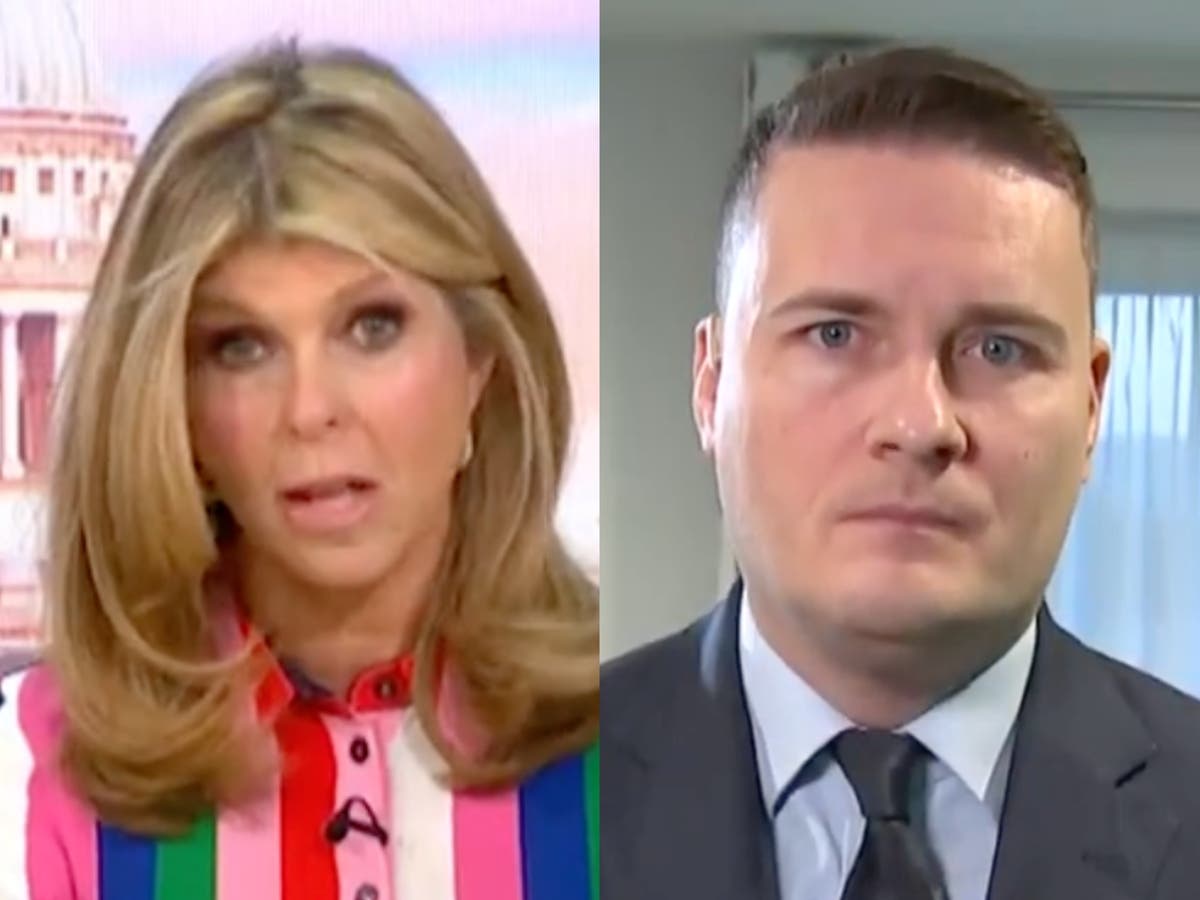Kate Garraway confronted Wes Streeting on Good Morning Britain for “excessive, unpayable debt” she built up while caring for her late husband.
On the first anniversary of Derek Draper’s death, the health secretary was invited on the breakfast show to discuss Labour’s health plans for the coming term.
However, the appearance quickly turned fiery when Ms Garraway challenged Streeting over the eye-watering costs involved in caring for her husband – previously reported to be around £16,000 per month.
Draper, who was a psychotherapist and former lobbyist for Labour, died weeks following a cardiac arrest after a years-long battle with the effects of Covid-19.
After spending nearly 100 days in a coma, Draper remained in need of constant care for the rest of his life, from professionals and from Garraway – but he was not eligible for funding, prompting the broadcaster to use her own money to ensure her husband had the help he needed.
Garraway previously revealed she incurred debts of £500,000 to £800,000, which she told Streeting was “excessive” and “unpayable”.
Speaking to the Labour politician about plans for a new national care service, which will be run independently, Garraway said: “Over the last few weeks, the family and I have been talking about the challenges we faced this time last year. One of the overriding ones when he went back into intensive care before he passed away was dealing with the funding of care.
She continued: “At the time of his death there were two appeals that hadn’t been heard for funding. It kept being pushed back and pushed back. In the meantime, I’m lucky I have an incredible job which is well paid. I was having to fund the situation. Now I’ve got excessive unpayable debt because of it.
“If I’m in that position, what else are people going to be?” Garraway asked, adding: “People can’t afford four more years of this!”

Watch Apple TV+ free for 7 days
New subscribers only. £8.99/mo. after free trial. Plan auto-renews until cancelled

Watch Apple TV+ free for 7 days
New subscribers only. £8.99/mo. after free trial. Plan auto-renews until cancelled
Streeting, speaking from Carlisle, told Garraway in response: “Firstly Kate, I know lots of viewers will feel the same, having followed [Draper’s story]. Your anniversary that you’re going through – yourself and your family – all of us are with you.

“I think that’s why your story connected with so many people. You’re not just a familiar face on screens, your viewers feel they’ve got a relationship with you as a presenter.
“It’s also because your experience with Derek, and your family’s experience resonates with so many people across the country who are struggling with the same costs or the same unmet needs or similar experiences.”
He agreed that there needs to be a change around who should provide costs of social care, telling Garraway and her co-host Adil Ray: “I think one of the reasons why we’ve always ended back into this short-termist cycle of failure is: whenever we talk about social care, there are costs involved.
“That sort of makes people run for the hills and want to stick their head in the sand in politics, because sometimes those numbers can be scary.
“One of the reasons I genuinely think – even with the majority of the size that we’ve got – it’s a good thing to try and build cross-party consensus, is I want to come up with a plan that means whoever’s in government after the next general election or the one after that, whether it’s a Labour government or a Conservative government or a coalition, or whoever, that broadly speaking, we keep the same direction of travel on social care in the way that we have with the NHS since 1948.”

Mr Streeting was speaking as he announced the first steps towards creating a National Care Service, with an independent commission expected to begin in the spring.
The timeline means that proposals for the long-term funding and major reform of social care in England may not be delivered until 2028.
Mr Streeting told BBC Radio 4’s Today programme that, for him, a national care service is “about national standards – consistent access to higher quality care for older and disabled people everywhere in the country”.
Asked if people would no longer have to sell their homes to pay for care, he said: “I would certainly like to see people protected from the catastrophic costs of upfront care that sees people forced to sell their homes and move out.”
The Government faced criticism last summer after Chancellor Rachel Reeves scrapped proposals from Sir Andrew Dilnot, whose recommendations had been accepted by the previous government.
Dilnot’s plan would have capped the amount older or disabled people pay for care at £86,000, with councils covering further costs. The proposal would also have allowed people to keep more savings before exceeding the cap.
Mr Streeting said on Friday that Labour had been ready to implement the Dilnot Commission’s social care proposals but “we found the money wasn’t there.”

